FEATURE
Akwa Ibom on the Rise: A Comprehensive Push for People-Centered Development
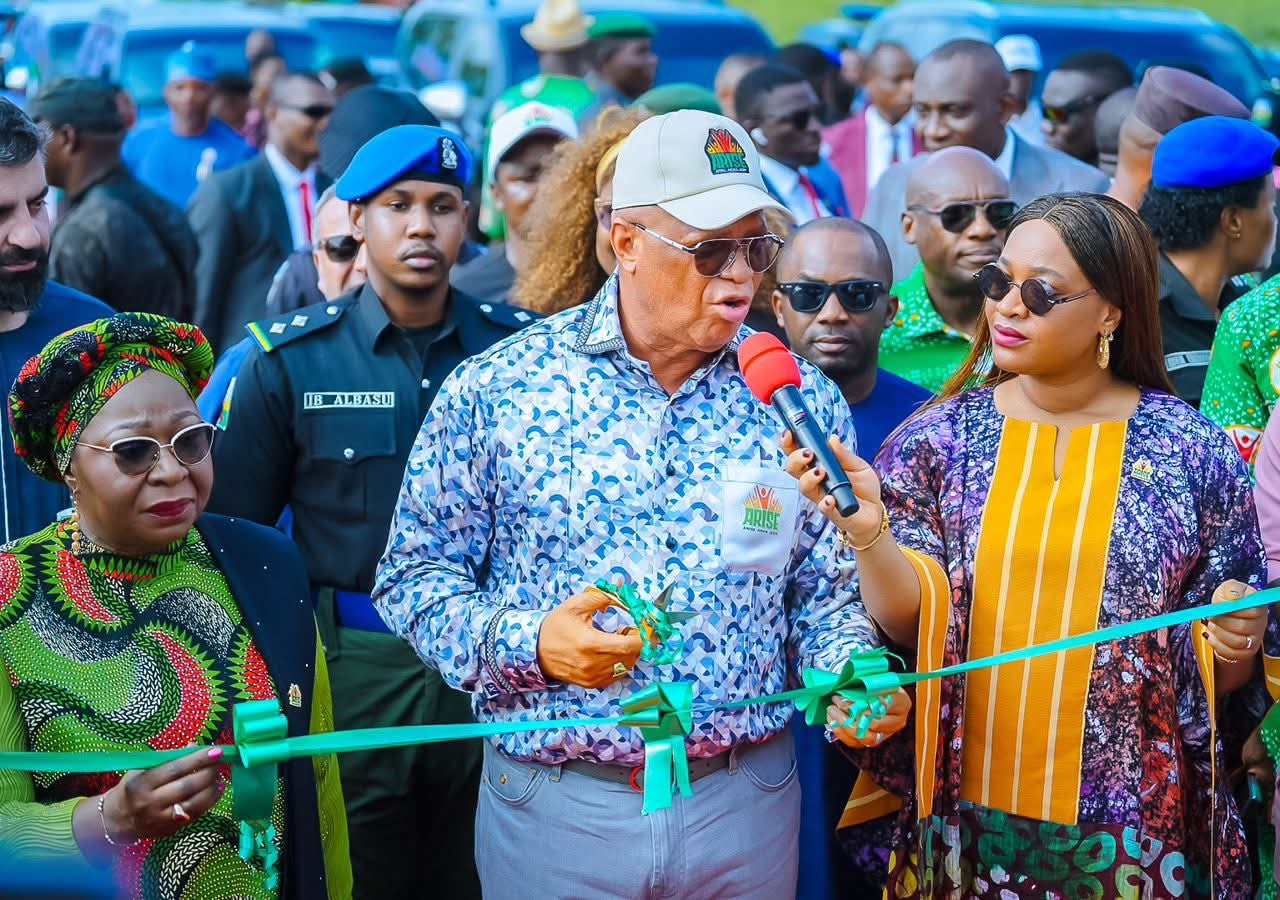
Akwa Ibom on the Rise: A Comprehensive Push for People-Centered Development
In an era where citizens demand not just promises but tangible results, Akwa Ibom State has emerged as a compelling case study in purposeful governance. Guided by Governor Umo Eno’s ARISE Agenda, the state is witnessing a coordinated transformation that cuts across critical sectors from modern infrastructure to security reforms, educational access, housing for the vulnerable, and robust welfare packages for workers and retirees.
Over the past months, bulldozers, patrol boats, classroom renovations, and housing handovers have become defining images of the administration’s work ethic. More than 770 kilometres of roads and 31 bridges are opening up communities and stimulating trade; a 4,500-man community security network, new gunboats, and a state-of-the-art Security and Command Center are strengthening safety on land and waterways.
In education, the government has expanded free learning opportunities, paid bursaries and examination fees, and supported students with disabilities through dedicated trust funds. Vulnerable families are moving into fully furnished ARISE Compassionate Homes, trading thatched huts for solar-powered bungalows. Meanwhile, civil servants and pensioners are enjoying historic welfare interventions from the ₦78 billion pension backlog clearance to an ₦80,000 minimum wage and the institutionalization of a 13th month salary.
This integrated approach signals a governance philosophy that sees development not as isolated projects, but as an interconnected system where roads enable commerce, security safeguards investments, education nurtures talent, housing restores dignity, and welfare rewards service. It is a vision that could redefine the socio-economic trajectory of Akwa Ibom State and set a benchmark for subnational leadership in Nigeria. Follow us @ The Providence Newspaper as we bring you special reports covering Roads, Security, Education, ARISE Compassionate Homes, and Workers & Retirees Welfare in Akwa Ibom State.
Workers & Retirees Welfare:
Akwa Ibom Rewards Service: ₦78bn Pension Backlog Cleared, Higher Pay and Bonuses for Workers.
In a decisive move to improve the welfare of both serving and retired public servants, the Akwa Ibom State Government has rolled out a series of landmark interventions, clearing decades-old pension arrears, introducing generous allowances, and setting a new standard in workers’ remuneration.
Governor Umo Eno, under the ARISE Agenda, has made workers’ dignity and retirees’ comfort central to his administration’s social contract.
₦78 Billion Pension and Gratuities Backlog Paid:
One of the administration’s most applauded achievements is the payment of over ₦78 billion in accumulated pension and gratuity arrears owed to retired civil servants.
The payout, made in phased tranches, has brought relief to thousands of retirees, many of whom had waited years for their entitlements. Pensioners’ unions have described the intervention as “a historic gesture of respect and justice.”
₦1.2 Billion Wardrobe Allowance for Teachers:
In recognition of the teaching profession’s role in shaping the state’s future, the government approved a ₦1.2 billion wardrobe allowance for public school teachers.
The one-off grant, distributed across the teaching workforce, is intended to boost morale and promote professional appearance. Teacher representatives have praised the initiative, saying it reflects a government that values educators beyond rhetoric.
₦80,000 Minimum Wage:
Akwa Ibom has also reviewed upward the minimum wage for state workers to ₦80,000, a figure well above the national benchmark.
This adjustment, officials say, aims to cushion the effects of inflation and rising living costs, ensuring that public servants can meet basic needs with dignity. Economists note that the measure will have a ripple effect on local commerce, as higher disposable incomes boost spending in the state economy.
13th Month Salary for Workers:
In a rare show of generosity in Nigeria’s public sector, Akwa Ibom has institutionalized the payment of a 13th month salary, an extra month’s pay in December to all civil servants.
The bonus, first introduced during Governor Umo Eno’s tenure, has quickly become a morale booster, allowing workers to meet festive season expenses without financial strain.
Setting a New Standard:
Labour leaders and policy analysts have hailed the package of welfare measures as one of the most comprehensive in the country, noting that it addresses both immediate needs and longstanding injustices.
Governor Eno has stressed that these initiatives are not mere political gestures but part of a deliberate effort to build a motivated, loyal, and productive workforce:
“Our workers and retirees are the backbone of this state. When we honour their labour, we strengthen the foundation of our development.”
ARISE Compassionate Homes:
ARISE Compassionate Homes: 205 Units Completed and Handed Over to Vulnerable Families in Akwa Ibom
In a remarkable stride toward social inclusion and poverty alleviation, the Akwa Ibom State Government has completed and handed over 205 fully furnished two-bedroom bungalows to vulnerable families across the state under its flagship ARISE Compassionate Homes initiative.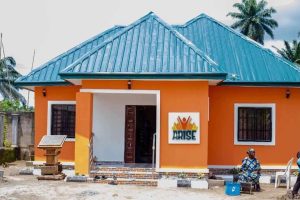
The scheme, launched by Governor Umo Eno as a cornerstone of his administration’s ARISE Agenda, is designed to provide safe, dignified housing for the state’s most disadvantaged citizens including widows, orphans, the elderly, and persons living with disabilities.
A Home, and a New Beginning:
Each housing unit, built to modern specifications, features two bedrooms, a living area, kitchenette, tiled roofing, and in many cases solar power installations to ensure reliable electricity. Beneficiaries also receive basic furnishings, and in several instances, a ₦500,000 business start-up grant to enable sustainable livelihoods.
Speaking at one of the recent handover ceremonies, Governor Eno reaffirmed his administration’s commitment to touching lives directly:
“We are not just building houses; we are restoring dignity, hope, and the confidence that government cares.”
Statewide Coverage:
The 205 homes delivered so far are spread across the 31 Local Government Areas of the state, with beneficiaries selected through a community-based identification process to ensure fairness and transparency. Each commissioning event has drawn large community attendance, underscoring the initiative’s public approval.
Human Impact Stories:
For many recipients, the intervention has been life-changing.
Mrs. Imaobong Ekpo, a widow from Ikot Abasi LGA, recounted moving from a leaking thatched hut into her furnished bungalow:
“I never believed I could live in a place like this. Today, I have a home, and my children can sleep without fear of rain or cold.”
Sustainability and Next Steps:
While celebrating the milestone, the administration has hinted at further expansion. Plans are underway to scale the project to 400 homes or more before the end of the current tenure in 2027. Officials also stress the importance of maintaining the houses, with discussions ongoing on establishing community maintenance committees.
A Model for Social Intervention:
The ARISE Compassionate Homes programme has drawn commendations from stakeholders in housing and humanitarian services, many of whom suggest it could serve as a replicable model for other Nigerian states seeking to bridge housing gaps for vulnerable populations.
By integrating housing provision with livelihood support, the initiative not only offers shelter but also a pathway out of poverty aligning with the states broader vision of inclusive development.
Education:
Akwa Ibom’s Bold Strides in Education: Free Learning, Bursaries, and Support for All
Akwa Ibom State has continued to position itself as one of Nigeria’s leading champions of inclusive and accessible education, rolling out a series of people-centered initiatives under Governor Umo Eno’s administration.
From free basic education for every child to special bursary schemes for students with disabilities, the state’s policy framework is reshaping the educational landscape and ensuring that no learner is left behind.
Free Education: Opening the School Gates Wider:
Akwa Ibom’s free education policy covers primary and secondary school pupils across the state, eliminating tuition costs and reducing the burden on parents. This initiative, sustained over successive administrations and reinforced under the ARISE Agenda, aims to boost enrollment, retention, and literacy rates.
Head teachers across several LGAs confirm a notable rise in attendance since the start of the academic session, with rural communities seeing some of the biggest gains.
Bursaries and Trust Fund for Disabled Students:
In a move hailed by education advocates, the state has introduced bursary payments and a dedicated trust fund for students living with disabilities. The scheme provides financial support to cover academic materials, assistive devices, and other learning-related expenses, empowering beneficiaries to pursue studies without undue financial stress.
“This is not charity; it is investment in human potential,” said a senior official in the Ministry of Education.
Payment of Examination Fees:
The state government also shoulders the cost of major public examinations, including the West African Senior School Certificate Examination (WASSCE) and National Examinations Council (NECO) fees for eligible students in public schools.
By removing this financial hurdle, the programme ensures that every student who completes secondary school has the opportunity to obtain certification, regardless of family income.
Subvention to Schools:
To sustain quality, the state provides regular subventions to public schools. These funds help cover operational needs from teaching aids and classroom maintenance to extracurricular programmes giving school management greater flexibility in addressing local challenges.
Education analysts note that such subventions have been crucial in keeping rural schools functional and competitive.
Impact and Outlook:
Parents, teachers, and community leaders have applauded the government’s education-friendly policies, noting improvements in both access and performance. However, stakeholders also stress the need for continued investment in teacher training, infrastructure, and technology integration to match rising enrollment with quality outcomes.
Governor Umo Eno has assured that education will remain a top priority:
“We are building not just classrooms, but futures. Every child, regardless of background or ability, deserves the tools to succeed.”
Security:
Securing the Homeland: Akwa Ibom’s Bold Security Architecture Takes Shape
With a coastline stretching over 129 kilometres and a growing urban population, Akwa Ibom State faces complex security challenges — from maritime crimes to community safety concerns. In response, the administration of Governor Umo Eno has launched a comprehensive security strategy anchored on institutional reform, manpower expansion, and advanced surveillance technology.
New Ministry of Internal Security and Waterways:
For the first time in the state’s history, a dedicated Ministry of Internal Security and Waterways has been established.
The ministry coordinates all security-related activities, focusing on both land-based policing and maritime protection. According to government officials, its mandate includes intelligence gathering, crisis response, and inter-agency coordination to ensure a proactive, rather than reactive, security posture.
4,500-Man Ibom Community Watch:
At the community level, the government has deployed a 4,500-strong Ibom Community Watch.
Drawn from local communities and trained in basic security and intelligence operations, this civilian force works closely with the police and other agencies to monitor neighbourhoods, report suspicious activity, and serve as the first line of defence in rural and riverine areas.
“Security begins at the grassroots. Our people are now partners in safeguarding their own communities,” Governor Eno stated during the inauguration of the corps.
Provision of Gunboats and Security Patrol Vehicles:
Recognizing the strategic importance of its waterways, the state has invested in gunboats and high-speed patrol vessels for marine surveillance.
On land, modern security patrol vehicles have been distributed to agencies for rapid response across all LGAs, boosting mobility and reducing incident response times.
State-of-the-Art Security and Command Center:
At the heart of this strategy is a newly commissioned Security and Command Center in Uyo.
Equipped with advanced surveillance systems, real-time communications, and data analysis capabilities, the center acts as a nerve hub for monitoring both terrestrial and maritime security operations. Officials say the facility will also integrate CCTV feeds from urban areas and coordinate rapid deployment of security teams.
Public Confidence Rising:
Community leaders and security experts have lauded the initiatives as a model of state-led security intervention, especially in a period where national security agencies are overstretched.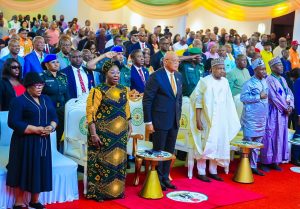
Maritime workers, in particular, have reported a decline in piracy-related incidents since the gunboat deployments began, while rural dwellers credit the Ibom Community Watch with deterring petty crime.
Roads:
Akwa Ibom Accelerates Infrastructure Growth: 770km of Roads, 31 Bridges Delivered
Akwa Ibom State’s landscape is undergoing a transformation as the administration of Governor Umo Eno pushes forward an ambitious infrastructure agenda, delivering over 770 kilometres of new and rehabilitated roads along with 31 modern bridges across the state.
The massive investment in road and bridge projects is part of the ARISE Agenda to improve connectivity, boost commerce, and open up rural areas to economic opportunities.
770 Kilometres of Roads: Linking Communities and Markets:
From the state capital in Uyo to the most remote rural settlements, newly constructed and rehabilitated roads are cutting travel time, easing transport costs, and connecting farmers to markets.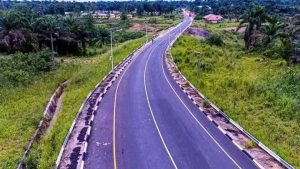
Key arterial routes have been upgraded to withstand heavy traffic, while feeder roads in agricultural belts are now providing all-season access. Public works officials say the network is deliberately designed to balance urban mobility with rural development.
31 Bridges: Overcoming Physical Barriers:
Alongside the road projects, 31 strategically located bridges have been completed, replacing ageing wooden crossings and unsafe makeshift structures.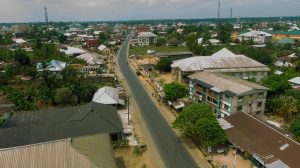
These bridges not only enhance safety for motorists and pedestrians but also ensure uninterrupted trade and access during the rainy season, when waterways often swell and cut off communities.
Economic and Social Impact:
Transporters and traders report that the new road and bridge network is already lowering vehicle maintenance costs and increasing the frequency of market runs.
In Eket, for example, fishmongers say they can now move fresh produce faster to urban markets without spoilage, while in Itu LGA, commuters have halved their journey times thanks to the new bridges and improved road surfaces.
Governor Eno’s Commitment:
Governor Umo Eno has described infrastructure as “the backbone of sustainable development,” stressing that the projects are not just for show but for service:
“Every kilometre of road we build is an investment in our people’s mobility, productivity, and prosperity.”
• Designed for all-season durability and improved safety.
Conclusion:
From the bustling urban centres to the most remote riverine settlements, the imprint of Akwa Ibom’s current development drive is visible, in smoother roads, safer communities, better schools, dignified homes, and a workforce that feels valued. These interventions are more than statistics; they represent restored hope, expanded opportunity, and strengthened trust between government and the governed.
By pursuing progress across infrastructure, security, education, housing, and welfare simultaneously, the administration has demonstrated that sustainable development is achieved when policies are people-focused and interconnected. Roads without security are underused; education without welfare support is unsustainable; housing without livelihoods is incomplete.
While challenges remain from maintaining infrastructure to deepening economic opportunities the deliberate integration of these initiatives signals a vision that extends beyond the present. It is a governance model anchored in inclusivity, accountability, and tangible impact.
As Akwa Ibom continues on this trajectory, the true measure of success will be in how these gains endure, expand, and inspire a culture of service and development that future administrations will not only inherit but build upon. The need to protect what we have is now.
Lucy Daniel, SA to the Governor on Media.
